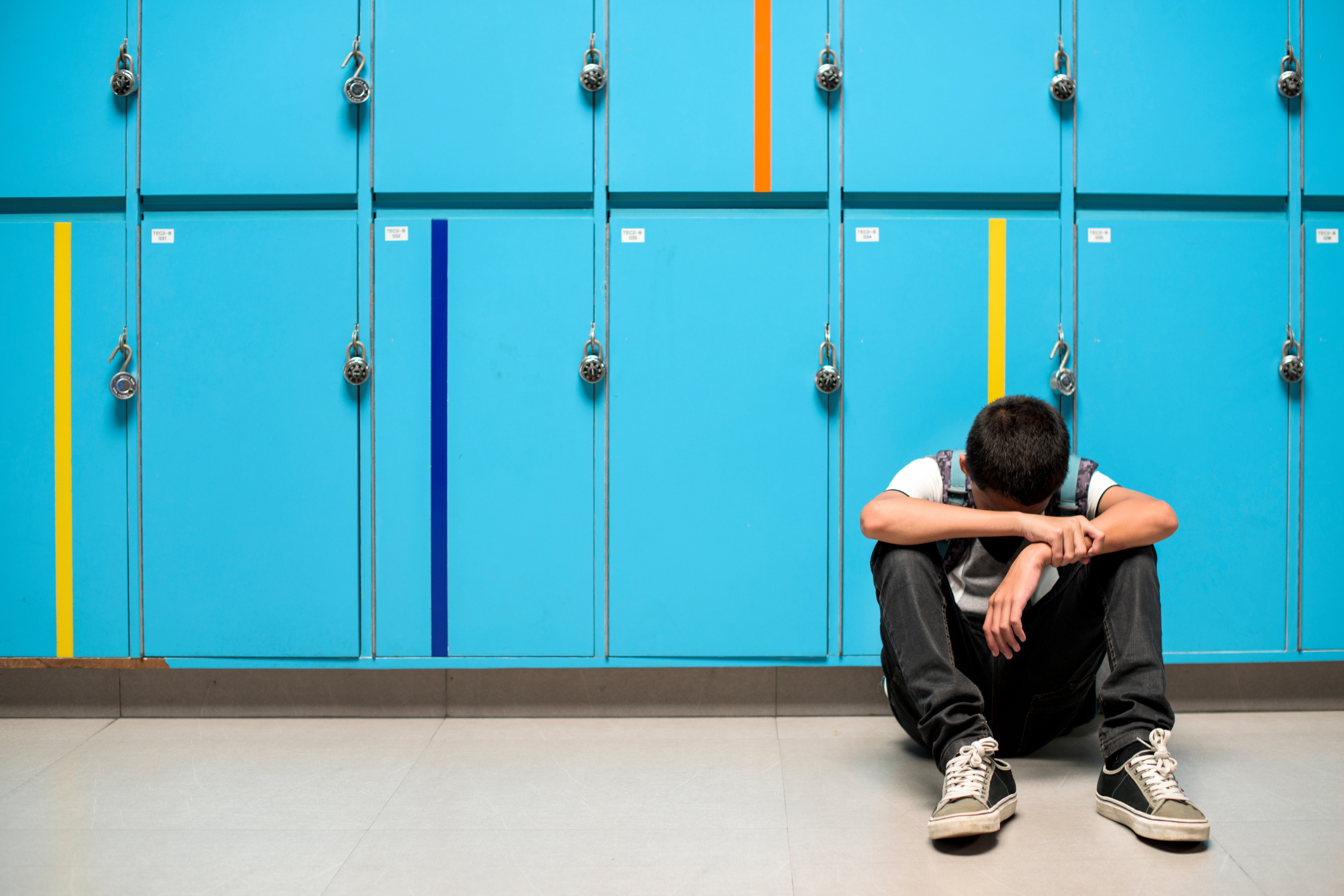By Karen Lowrie and Brooke Schwartzman
Teens of today have faced major shifts in societal, environmental, community, familial, and individual spheres, heightened by racial and school-based violence and the COVID-19 pandemic, creating challenges and pressures that pervasively and negatively impact mental health and well-being. These pressures can be associated with many distressing outcomes, from school performance declines to increased rates of anxiety, depression and social withdrawal. Yet for many middle and high school students, especially those of lower income or without insurance, treatment options are scarce and school sites may be the most accessible and convenient location for accessing diagnostic, therapeutic and social services for mental health needs. The New Jersey State Policy Lab has collaborated with the Bloustein School’s Dr. Karen Lowrie and graduate student Brooke Schwartzman to research the state of youth mental health in New Jersey and propose policy options for school-based services.
The report “Youth Mental Health in New Jersey: Current Status and Opportunities for Improved Services” is based on a study that was developed in response to Governor Murphy’s proposed NJ Statewide Student Support Services (NJ4S) program, a proposal which sought to replace pre-existing mental health services co-located within certain schools in the state with a hub-and-spoke regional model. While the proposal to cut preexisting services was called off shortly after the completion of this study, its findings and recommendations remain important, offering insights on mental health indicators, a discussion of the state of New Jersey’s school-based mental health system, and case studies that draw out best practices from other states’ mental health programming. The report’s policy recommendations will inform New Jersey policymakers as the state will continue to consider the redesign of school-based mental health services in coming years to address the burgeoning youth mental health crisis.
The first phase of the study collected and analyzed recent data from federal and state agency sources about mental health conditions and social and environmental determinants of mental health for New Jersey middle school and high school students. Data categories included mental health illnesses and symptoms, suicide, family and peer relationships, tobacco and alcohol consumption, community conditions and more. The study also found and noted a number of shortcomings and caveats concerning reliable and complete mental health statistics at the state level that point to a need for improved tracking of this important aspect of well-being and health.
Key takeaways include:
- From a quarter to a half of New Jersey youth are experiencing poor mental health in the form of emotional or depressive problems, sadness, or hopelessness for extended periods of time.
- About a third of New Jersey youth have experienced an Adverse Childhood Experience (ACE).
- Female students are up to 50% more likely to experience anxiety, sadness, or suicide ideations than male students.
- Hispanic youth are more likely to feel unsafe at school than White or Black students and suffer more emotional disturbances.
- White youth suffer anxiety in higher proportions than Black, Hispanic, or Asian youth.
- White and Hispanic youth engage in more binge drinking and are more likely to be victims of bullying than Black youth.
- The proportion of poor neighborhood and familial determinants of mental health is higher in Hispanic and Black populations.
- Asian students are less likely than other racial/ethnic groups to experience risk factors for developing poor mental health outcomes.
- One in six families reports no insurance for mental health and about half found difficulty getting adequate counseling.
The second phase of the study involved conducting research on the structure of New Jersey’s current school-based mental health system, and obtaining insights from case studies conducted on Washington D.C., Maryland, and Wisconsin’s state-level systems. Drawing on these lessons, the report culminates with a set of policy recommendations including:
- Support and enhance current mental health programs.
- Implement creative options to improve equitable access to the Department of Children and Families’ School-Based Youth Services Program (SBYSP).
- Expand New Jersey’s School-Based Health Center (SBHC) network both geographically and functionally to broaden the reach of low-cost mental health services.
- Standardize school-linked mental health services and require Multi-Tiered Systems of Support (MTSS) for intervention and referral services.
- Pilot a hub model in one or two regions while retaining the school-based service model, (if a shift to a regional service delivery model is considered).
- Use Child Study Teams (CST) more extensively in a mental health framework.
- Improve access and clarity of outreach materials on available youth mental health services.
The report stresses and supports the importance of equitable access to mental health professionals and continuity of care as key elements to stem the current crisis and build toward a bright and healthy future for all New Jersey youth.
Dr. Karen Lowrie is Associate Director of the Environmental Analysis and Communication group within the Center for Urban Policy Research at the Bloustein School of Planning and Public Policy at Rutgers University and Brooke Schwartzman is a graduate student in the Edward J. Bloustein School of Planning and Public Policy at Rutgers University.

